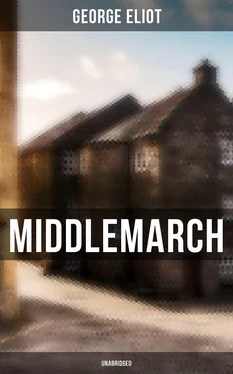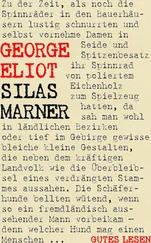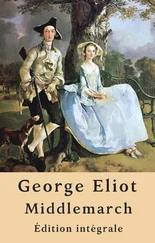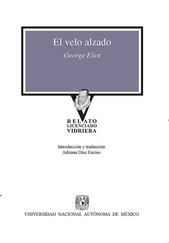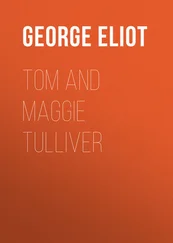“Every one would not agree with you there, mother,” said Fred, who seemed to be able to read and listen too.
“Well, my dear,” said Mrs. Vincy, wheeling skilfully, “if she HAD some fortune left her — a man marries his wife’s relations, and the Garths are so poor, and live in such a small way. But I shall leave you to your studies, my dear; for I must go and do some shopping.”
“Fred’s studies are not very deep,” said Rosamond, rising with her mamma, “he is only reading a novel.”
“Well, well, by-and-by he’ll go to his Latin and things,” said Mrs. Vincy, soothingly, stroking her son’s head. “There’s a fire in the smoking-room on purpose. It’s your father’s wish, you know — Fred, my dear — and I always tell him you will be good, and go to college again to take your degree.”
Fred drew his mother’s hand down to his lips, but said nothing.
“I suppose you are not going out riding to-day?” said Rosamond, lingering a little after her mamma was gone.
“No; why?”
“Papa says I may have the chestnut to ride now.”
“You can go with me to-morrow, if you like. Only I am going to Stone Court, remember.”
“I want to ride so much, it is indifferent to me where we go.” Rosamond really wished to go to Stone Court, of all other places.
“Oh, I say, Rosy,” said Fred, as she was passing out of the room, “if you are going to the piano, let me come and play some airs with you.”
“Pray do not ask me this morning.”
“Why not this morning?”
“Really, Fred, I wish you would leave off playing the flute. A man looks very silly playing the flute. And you play so out of tune.”
“When next any one makes love to you, Miss Rosamond, I will tell him how obliging you are.”
“Why should you expect me to oblige you by hearing you play the flute, any more than I should expect you to oblige me by not playing it?”
“And why should you expect me to take you out riding?”
This question led to an adjustment, for Rosamond had set her mind on that particular ride.
So Fred was gratified with nearly an hour’s practice of “Ar hyd y nos,” “Ye banks and braes,” and other favorite airs from his “Instructor on the Flute;” a wheezy performance, into which he threw much ambition and an irrepressible hopefulness.
Table of Contents
“He had more tow on his distaffe
Than Gerveis knew.”
— CHAUCER.
The ride to Stone Court, which Fred and Rosamond took the next morning, lay through a pretty bit of midland landscape, almost all meadows and pastures, with hedgerows still allowed to grow in bushy beauty and to spread out coral fruit for the birds. Little details gave each field a particular physiognomy, dear to the eyes that have looked on them from childhood: the pool in the corner where the grasses were dank and trees leaned whisperingly; the great oak shadowing a bare place in mid-pasture; the high bank where the ash-trees grew; the sudden slope of the old marl-pit making a red background for the burdock; the huddled roofs and ricks of the homestead without a traceable way of approach; the gray gate and fences against the depths of the bordering wood; and the stray hovel, its old, old thatch full of mossy hills and valleys with wondrous modulations of light and shadow such as we travel far to see in later life, and see larger, but not more beautiful. These are the things that make the gamut of joy in landscape to midland-bred souls — the things they toddled among, or perhaps learned by heart standing between their father’s knees while he drove leisurely.
But the road, even the byroad, was excellent; for Lowick, as we have seen, was not a parish of muddy lanes and poor tenants; and it was into Lowick parish that Fred and Rosamond entered after a couple of miles’ riding. Another mile would bring them to Stone Court, and at the end of the first half, the house was already visible, looking as if it had been arrested in its growth toward a stone mansion by an unexpected budding of farm-buildings on its left flank, which had hindered it from becoming anything more than the substantial dwelling of a gentleman farmer. It was not the less agreeable an object in the distance for the cluster of pinnacled corn-ricks which balanced the fine row of walnuts on the right.
Presently it was possible to discern something that might be a gig on the circular drive before the front door.
“Dear me,” said Rosamond, “I hope none of my uncle’s horrible relations are there.”
“They are, though. That is Mrs. Waule’s gig — the last yellow gig left, I should think. When I see Mrs. Waule in it, I understand how yellow can have been worn for mourning. That gig seems to me more funereal than a hearse. But then Mrs. Waule always has black crape on. How does she manage it, Rosy? Her friends can’t always be dying.”
“I don’t know at all. And she is not in the least evangelical,” said Rosamond, reflectively, as if that religious point of view would have fully accounted for perpetual crape. “And, not poor,” she added, after a moment’s pause.
“No, by George! They are as rich as Jews, those Waules and Featherstones; I mean, for people like them, who don’t want to spend anything. And yet they hang about my uncle like vultures, and are afraid of a farthing going away from their side of the family. But I believe he hates them all.”
The Mrs. Waule who was so far from being admirable in the eyes of these distant connections, had happened to say this very morning (not at all with a defiant air, but in a low, muffied, neutral tone, as of a voice heard through cotton wool) that she did not wish “to enjoy their good opinion.” She was seated, as she observed, on her own brother’s hearth, and had been Jane Featherstone five-and-twenty years before she had been Jane Waule, which entitled her to speak when her own brother’s name had been made free with by those who had no right to it.
“What are you driving at there?” said Mr. Featherstone, holding his stick between his knees and settling his wig, while he gave her a momentary sharp glance, which seemed to react on him like a draught of cold air and set him coughing.
Mrs. Waule had to defer her answer till he was quiet again, till Mary Garth had supplied him with fresh syrup, and he had begun to rub the gold knob of his stick, looking bitterly at the fire. It was a bright fire, but it made no difference to the chill-looking purplish tint of Mrs. Waule’s face, which was as neutral as her voice; having mere chinks for eyes, and lips that hardly moved in speaking.
“The doctors can’t master that cough, brother. It’s just like what I have; for I’m your own sister, constitution and everything. But, as I was saying, it’s a pity Mrs. Vincy’s family can’t be better conducted.”
“Tchah! you said nothing o’ the sort. You said somebody had made free with my name.”
“And no more than can be proved, if what everybody says is true. My brother Solomon tells me it’s the talk up and down in Middlemarch how unsteady young Vincy is, and has been forever gambling at billiards since home he came.”
“Nonsense! What’s a game at billiards? It’s a good gentlemanly game; and young Vincy is not a clodhopper. If your son John took to billiards, now, he’d make a fool of himself.”
“Your nephew John never took to billiards or any other game, brother, and is far from losing hundreds of pounds, which, if what everybody says is true, must be found somewhere else than out of Mr. Vincy the father’s pocket. For they say he’s been losing money for years, though nobody would think so, to see him go coursing and keeping open house as they do. And I’ve heard say Mr. Bulstrode condemns Mrs. Vincy beyond anything for her flightiness, and spoiling her children so.”!
Читать дальше
